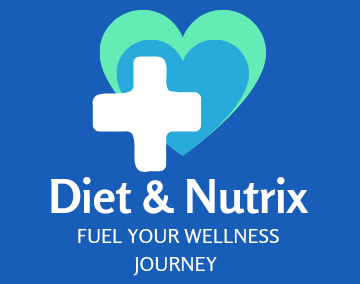The Ultimate Guide to Diet and Nutrition for Weight Loss and Fitness
Introduction to Diet and Nutrition
The importance of diet and nutrix is paramount in achieving weight loss and fitness goals. A well-balanced diet, combined with regular good exercise, creates a synergy that significantly enhances health and well-being. Diet and exercise are not mutually exclusive; rather, they complement each other to optimize your body composition, energy levels, and physical health.
The fundamental principles of nutrition revolve around the intake of macronutrients—proteins, carbohydrates, and fats—and micronutrients, such as vitamins and minerals. Each of these nutrients plays an important role in maintaining bodily functions and supporting metabolic processes. Proteins are vital for muscle growth & repair, carbohydrates provide the primary source of energy, and fats are essential for hormone production and cellular health.
A well-structured diet ensures that the body receives the necessary nutrients in appropriate quantities. For instance, proteins aid in muscle retention and development, which is particularly important for those engaging in strength training or resistance exercises.
Hydration is a important component of nutrition that often overlooked. Adequate water intake aids in digestion, nutrient absorption, and temperature regulation, all of which are essential for maintaining optimal performance during physical activities.
A balanced diet and regular exercise into one’s lifestyle not only facilitates weight loss but also contributes to reduced risk of chronic diseases, improved mental and physical health, and enhanced quality of life. By understanding and applying the basic principles of nutrition, individuals can make informed decisions that support their fitness and health goals.

Understanding Macronutrients: Proteins, Carbs, and Fats
Macronutrients are the cornerstone of any effective diet and nutrition plan for weight loss and fitness. These essential nutrients—proteins, carbohydrates, and fats—play distinct yet complementary roles in the body, contributing to both weight loss and muscle growth.
Proteins are vital for muscle repair and growth. They are composed of amino acids, which are the building blocks of muscle tissue. Adequate protein intake is crucial for those aiming to lose weight while preserving lean muscle mass. Protein also has a high thermic effect, meaning the body burns more calories digesting it compared to fats and carbs. Healthy sources of protein include lean meats such as chicken and turkey, fish, eggs, legumes, and dairy products. For those following a fitness regimen, a daily intake of 1.2 to 2.2 grams of protein per kilogram of body weight is generally recommended.
Carbohydrates are the body’s primary source of energy. They fuel both high-intensity workouts and daily activities. Carbs are broken down into glucose, which is stored in the muscles and liver as glycogen. Glycogen is then used to sustain energy levels during physical activities. Whole grains, fruits, vegetables, and legumes are excellent sources of complex carbohydrates, which provide sustained energy and are rich in fiber. For weight loss and fitness, a balanced intake of 3 to 5 grams of carbohydrates per kilogram of body weight is typically suggested, though this can vary based on activity level.
Fats are essential for hormone production, nutrient absorption, and overall cellular health. While fats are more calorie-dense than proteins and carbohydrates, they are crucial for maintaining energy levels during prolonged activities. Healthy fats can be found in avocados, nuts, seeds, and fatty fish like salmon. For those focused on weight loss and fitness, it is advised to consume 0.5 to 1 gram of fat per kilogram of body weight daily.
Understanding the distinct roles of proteins, carbohydrates, and fats, along with incorporating healthy sources of each, is fundamental to achieving weight loss and fitness goals. Tailoring your macronutrient intake based on your specific fitness objectives can help optimize performance and overall health.
The Role of Micronutrients: Vitamins and Minerals
Micronutrients, including vitamins and minerals, play a pivotal role in maintaining overall health and supporting weight loss and fitness goals. These essential nutrients contribute to various bodily functions, such as metabolism, muscle recovery, and immune system fortification. A balanced diet must include an array of vitamins and minerals to ensure optimal performance and well-being.
Key vitamins that support weight loss and metabolism include Vitamin D, B vitamins, and Vitamin C. Vitamin D is critical for bone health and muscle function, and it can be synthesized through sun exposure or consumed via fortified foods and supplements. B vitamins, such as B6, B12, and folate, are vital for energy production and metabolic processes. Vitamin C, an antioxidant, not only supports the immune system but also aids in the repair of tissues and the absorption of iron, which is essential for energy levels.
Minerals like calcium, magnesium, and iron are equally important. Calcium is known for its role in maintaining strong bones and teeth, but it also assists in muscle contraction and nerve function. Magnesium is involved in over 300 enzymatic reactions in the body, including protein synthesis, muscle and nerve function, blood glucose control, and blood pressure regulation. Iron is crucial for oxygen transport in the blood and plays a significant role in energy metabolism and endurance.
To ensure adequate intake of these essential vitamins and minerals, it is recommended to consume a varied diet rich in fruits, vegetables, whole grains, lean proteins, and dairy products. Foods such as leafy greens, nuts, seeds, legumes, and fish are particularly nutrient-dense. In cases where dietary sources may be insufficient, supplementation can be considered, preferably under the guidance of a healthcare professional.
Incorporating a wide range of nutrient-rich foods into your diet not only supports weight loss and fitness but also promotes overall health and vitality. By paying attention to both macronutrients and micronutrients, you can achieve a more balanced and effective nutritional plan.
Creating a Balanced Meal Plan
When embarking on a weight loss and fitness journey, establishing a balanced meal plan is crucial. A well-structured meal plan aids in controlling portions, ensuring nutrient intake and avoiding unhealthy snacking. Begin by focusing on nutrient-dense foods that provide essential vitamins, minerals, and other nutrients without an excessive calorie count.
Start with breakfast, which should be rich in protein and fiber to keep you full throughout the morning. Consider a meal such as oatmeal topped with fresh fruits and nuts or a vegetable omelette paired with whole-grain toast. These options provide a balanced mix of macronutrients, ensuring a steady energy release.
For lunch, aim for a combination of lean proteins, vegetables, and whole grains. A grilled chicken salad with a variety of colorful vegetables and a light vinaigrette dressing is a nutrient-dense choice. Alternatively, a quinoa bowl with black beans, avocado, and mixed greens offers a high-fiber, protein-packed meal.
Dinner should be lighter yet still fulfilling. Opt for a serving of grilled fish, steamed vegetables, and a small portion of brown rice or sweet potatoes. This combination ensures you receive adequate protein, vitamins, and complex carbohydrates without overloading on calories.
Snacks are an essential part of a balanced meal plan, helping to maintain energy levels and prevent overeating at main meals. Choose options such as Greek yogurt with a sprinkle of chia seeds, apple slices with almond butter, or a handful of mixed nuts. These snacks are nutrient-dense and help keep hunger at bay.
Here is a sample meal plan to guide you:
Breakfast: Greek yogurt parfait with mixed berries and a drizzle of honey.
Lunch: Quinoa and black bean salad with a side of mixed greens.
Dinner: Grilled salmon with steamed broccoli and a small serving of wild rice.
Snacks: Carrot sticks with hummus, and a small handful of almonds.
By incorporating these strategies into your routine, you can create a balanced meal plan that supports your weight loss and fitness goals effectively.
The Importance of Hydration
Staying hydrated is a pivotal component for weight loss and overall fitness. Water plays a vital role in numerous bodily functions, including digestion, nutrient absorption, and temperature regulation. Proper hydration ensures that the body operates at optimal levels, a necessity for those striving to lose weight and maintain fitness. Dehydration, on the other hand, can have detrimental effects on physical performance and metabolism, hindering one’s fitness goals.
When the body is dehydrated, it can lead to a decrease in physical performance. Muscles are primarily composed of water, and insufficient hydration can result in muscle fatigue and decreased strength, making workouts less effective. Additionally, dehydration can impair the body’s ability to regulate temperature, causing overheating and increasing the risk of heat-related illnesses, especially during intense exercise or in hot climates.
Moreover, hydration is intricately linked to metabolism. Water is essential for the metabolic process, aiding in the breakdown of food and the conversion of nutrients into energy. Dehydration can slow down this process, leading to a reduced metabolic rate and making it more challenging to burn calories efficiently. Proper hydration supports kidney function and assists in the elimination of waste products, further enhancing metabolic efficiency.
To maintain optimal hydration, it is recommended that individuals consume at least eight 8-ounce glasses of water per day, commonly referred to as the “8×8” rule. However, individual needs may vary based on factors such as body size, activity level, and environmental conditions. During exercise, it is crucial to drink water before, during, and after workouts to replace fluids lost through sweat. Monitoring the color of urine can also be a helpful indicator of hydration levels; pale yellow urine typically signifies adequate hydration, while darker urine suggests the need for more fluids.
Incorporating water-rich foods, such as fruits and vegetables, into the diet can also contribute to overall hydration. Foods like watermelon, cucumbers, and oranges have high water content and can help supplement fluid intake. Additionally, setting reminders to drink water throughout the day and carrying a reusable water bottle can be effective strategies to ensure consistent hydration.
The Impact of Dietary Supplements
Dietary supplements have become a prevalent component of many individuals’ weight loss and fitness strategies. These products, which range from protein powders to multivitamins and fat burners, are often marketed as essential aids in achieving health and fitness goals. However, understanding their role, benefits, and potential risks is crucial for making informed decisions.
Protein powders are among the most popular supplements in the fitness community. They are typically used to augment protein intake, especially for those engaged in strength training or intensive exercise routines. Adequate protein consumption is essential for muscle repair and growth, and protein powders offer a convenient way to meet these nutritional requirements. However, it is important to remember that whole foods should remain the primary source of protein, as they also provide essential nutrients and fiber.
Multivitamins are another common supplement, often taken to fill potential nutrient gaps in the diet. They can support overall health and well-being, which is particularly beneficial for individuals on restricted calorie diets. Despite their popularity, multivitamins should not be considered a substitute for a balanced diet. Over-reliance on these supplements can lead to excessive intake of certain vitamins and minerals, potentially causing adverse effects.
Fat burners, which typically contain a mix of ingredients like caffeine, green tea extract, and other thermogenic compounds, are marketed for their potential to enhance fat loss. While some studies suggest that these supplements can increase metabolic rate and fat oxidation, their effects are generally modest and can vary significantly between individuals. Moreover, the side effects, such as increased heart rate, anxiety, and digestive issues, warrant careful consideration.
Given the potential benefits and risks associated with dietary supplements, it is imperative to consult with a healthcare professional before incorporating them into your regimen. A qualified expert can provide personalized advice based on your individual health needs and fitness goals, ensuring that any supplement use is both safe and effective.
Common Diet Myths Debunked
In the realm of weight loss and fitness, numerous diet myths persist, often leading individuals astray from effective and sustainable practices. One prevalent myth is the belief in the effectiveness of fad diets. While fad diets such as the grapefruit diet or the cabbage soup diet promise rapid weight loss, they fail to deliver long-term results. These diets typically involve severe calorie restriction or the elimination of entire food groups, which can lead to nutritional deficiencies and metabolic imbalances. Scientific studies consistently show that balanced, varied diets are more effective for sustained weight loss and overall health.
Another common misconception is the role of carbohydrates in weight gain. Carbohydrates have been unfairly demonized in recent years, with many diet plans advocating for their complete elimination. However, carbohydrates are an essential macronutrient, providing the primary source of energy for the body. The key lies in choosing complex carbohydrates such as whole grains, fruits, and vegetables, which offer fiber and nutrients, over simple carbohydrates like refined sugars and processed foods. Balanced carbohydrate intake supports not only weight management but also optimal physical and mental performance.
The notion of ‘starvation mode’ is another myth that warrants debunking. ‘Starvation mode’ suggests that drastically reducing calorie intake will cause the body to hold onto fat, making it harder to lose weight. While it is true that extreme calorie restriction can slow metabolism, the body does not immediately enter a fat-hoarding state. Instead, the reduction in metabolic rate is a gradual process. Sustainable weight loss is best achieved through moderate calorie deficits combined with regular physical activity, ensuring that the body receives the nutrients it needs to function effectively.
By debunking these common diet myths with evidence-based explanations, individuals can make informed decisions about their nutrition and fitness plans. Understanding the science behind diet and nutrition helps in creating sustainable habits that promote long-term health and weight management.
Sustainable Lifestyle Changes for Long-Term Success
Adopting sustainable lifestyle changes is crucial for achieving long-term success in weight loss and fitness. Unlike short-term diets that often lead to temporary results, sustainable changes emphasize consistency, realistic goal-setting, and the development of healthy habits. By focusing on these elements, individuals can create a foundation for lasting improvement in their overall health and well-being.
Consistency is a key factor in maintaining a healthy diet and exercise routine. Regularity in meals and physical activity helps the body adapt and respond positively to new habits. One way to ensure consistency is by planning meals and workouts ahead of time. Meal prepping and scheduling exercise sessions can reduce the likelihood of skipping meals or workouts due to a lack of time or motivation.
Setting realistic goals is equally important. Unrealistic expectations can lead to frustration and burnout, ultimately causing individuals to abandon their efforts. Instead, setting achievable, incremental goals allows for steady progress and a sense of accomplishment. For example, aiming to lose one to two pounds per week or gradually increasing workout intensity can be more manageable and sustainable.
Developing healthy habits is the cornerstone of a sustainable lifestyle. Simple changes, such as incorporating more fruits and vegetables into meals, drinking plenty of water, and reducing processed food intake, can make a significant difference. Additionally, finding enjoyable physical activities, whether it’s walking, cycling, or dancing, can help maintain regular exercise habits.
Staying motivated can be challenging, but there are several strategies to overcome common obstacles. Tracking progress through journals or apps can provide a visual representation of achievements, which can be motivating. Seeking support from friends, family, or online communities can also provide encouragement and accountability. Finally, rewarding oneself for reaching milestones, such as treating oneself to a new workout outfit or a relaxing day off, can help maintain motivation.
Overcoming challenges in maintaining a healthy diet and exercise routine often requires flexibility and adaptability. It’s essential to recognize that setbacks are a natural part of the journey and not a reason to give up. By focusing on long-term goals and making adjustments as needed, individuals can continue to progress towards a healthier lifestyle.
For more details keep visiting :https://dietandnutrix.com
For more tips and personalized advice on nutrition, visit Diet and Nutrix
For more weight loss tips keep visiting :The Best Guide For Portion Control Diet





Can i get a diet plan?